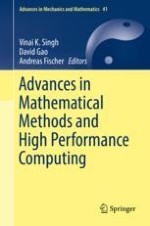2019 | OriginalPaper | Buchkapitel
Modeling the Socio-Economic Waste Generation Factors Using Artificial Neural Network: A Case Study of Gurugram (Haryana State, India)
verfasst von : Ajay Satija, Dipti Singh, Vinai K. Singh
Erschienen in: Advances in Mathematical Methods and High Performance Computing
Aktivieren Sie unsere intelligente Suche, um passende Fachinhalte oder Patente zu finden.
Wählen Sie Textabschnitte aus um mit Künstlicher Intelligenz passenden Patente zu finden. powered by
Markieren Sie Textabschnitte, um KI-gestützt weitere passende Inhalte zu finden. powered by
